- The instructor must collect the evidence of the alleged violation. Collection of evidence includes noting the date, time, location, course and section, any witnesses, and any corroborating evidence of the offense. Evidence may include, but is not limited to: copies of tests/assignments, spreadsheets, emails, and any electronic documents, including any software verification of plagiarism. The instructor must provide a written summary of the academic assignment, evidence of the alleged violation, and description of any interaction with the student about the alleged offense to their immediate supervisor following its discovery.
- The instructor must meet with their immediate supervisor within three business days of the discovery (excluding breaks and holidays) to review evidence and details of the alleged violation. The immediate supervisor shall consult with the appropriate dean or director to determine if there are additional incidences of academic dishonesty.
- Following the meeting with the immediate supervisor, the instructor must notify the student in writing via the student’s institutional email of the alleged violation of the academic honesty policy. The student must be provided a copy of the academic honesty policy for reference. The student must be notified that, in order to remain enrolled in the course, the student is required to meet with the instructor (virtually or in-person). The student must be informed that the forthcoming meeting is an opportunity for the student to provide evidence of the originality of the work, provide evidence of the authenticity of the student’s academic performance, and provide any additional evidence.
- The meeting with the student should include both the instructor and their immediate supervisor. The instructor must inform the student of the specific alleged violation and the possible sanction(s) the student is facing if the student is found responsible for the alleged violation. Details of the meeting should be documented using the Academic Honesty Violation Report Form. The student should be afforded the opportunity to explain the incident and ask questions.
- Within two business days (excluding breaks and holidays) of meeting with the student, a sanction must be determined by the instructor and their immediate supervisor. The sanction(s) must be provided to the student in writing via the student’s institutional email. The sanction notification must include the appellate process. The sanction(s) must be reported to the Vice President for Student Services for record keeping.
- The student may appeal the issued sanction(s) if the student believes the finding is false or unjust. The student may appeal to the Vice President for Student Services in writing within three business days (excluding breaks and holidays). If the student appeals the initial finding of academic dishonesty, the Vice President for Student Services may, at his or her discretion and based on the student’s appeal and rationale, convene the Academic Review Board to serve as a hearing panel. The Academic Review Board will hear all appeals within five business days (excluding breaks and holidays) of notification from the Vice President for Student Services. The decision of the Academic Review Board is final. The student shall be notified in writing via the student’s institutional email by the Vice President for Student Services of the final decision.


